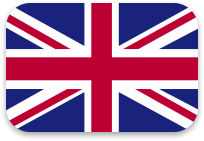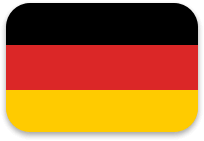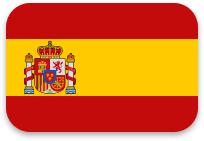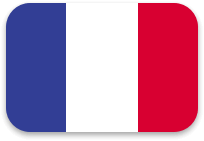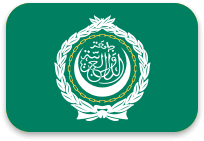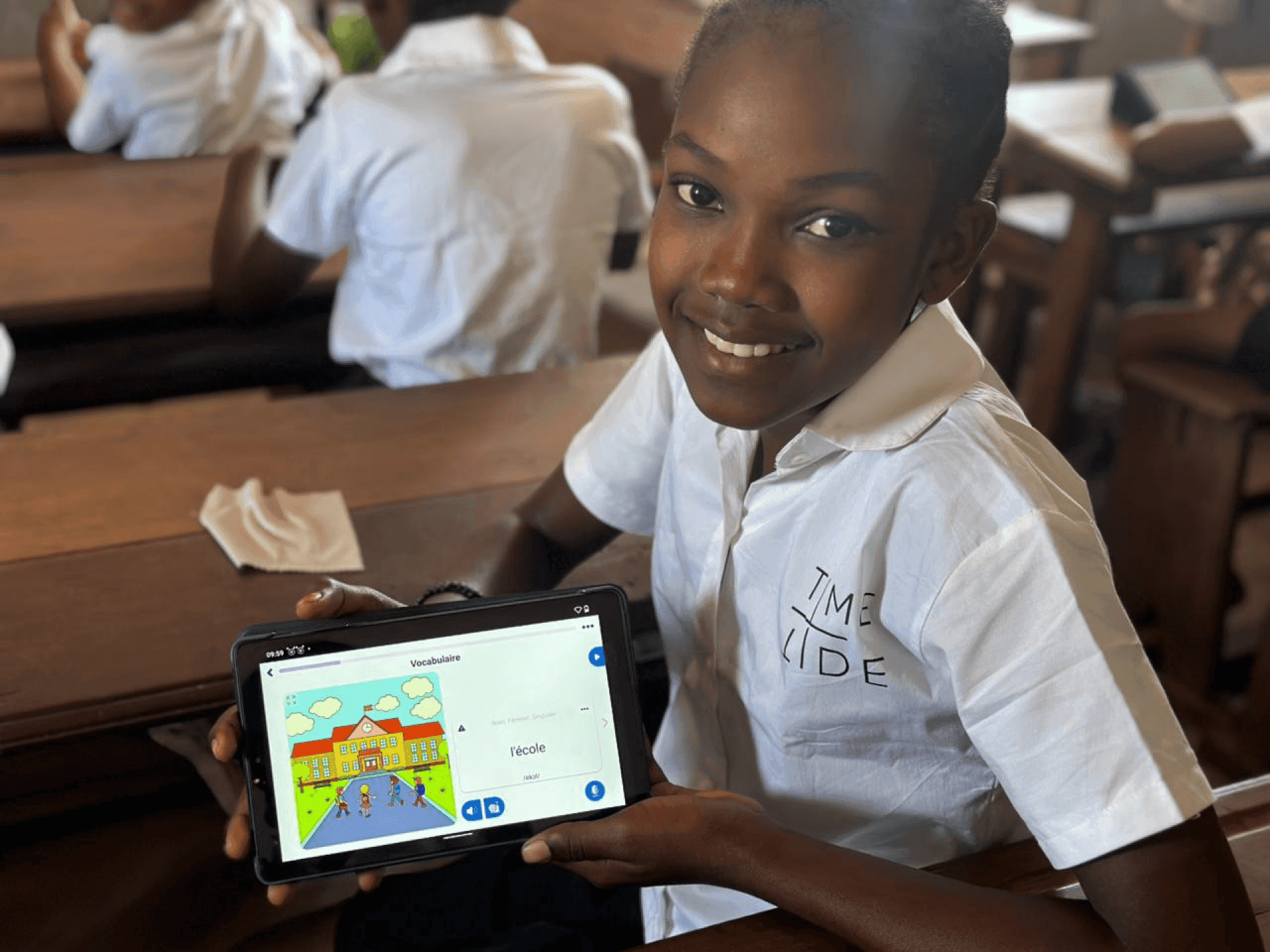In developing countries, girls' access to education is often restricted. That is especially true for remote areas, particularly where there is a shortage of teaching staff. While the completion rate for primary education is above 50% for both girls and boys, secondary education is an issue. Girls are more involved in domestic chores and farming work as they grow. According to data from the World Bank, only 30.8% of girls attend secondary school. Moreover, children from remote areas have restricted access to schools, which has a negative impact on their academic performance and job prospects.
Challenges in Women's Education
Women from Madagascar ages 15–49 hit a 55.8% mark of illiteracy, which is significantly higher compared to the 26.9% recorded among the men in the area.
Malagasy women tend to have limited access to education beyond primary school. Some of the challenges they are facing include, but are not restricted to the following:
- Access to schooling. For children living in remote areas, the way to school is an additional obstacle they face on school days, making attendance difficult.
- Domestic responsibilities. Girls in rural areas have more chores around the house than boys. They are also actively involved in farming activities or other forms of physical work. At the end of the day, there is no time for homework, even if they can make an additional effort to attend.
- Limited education resources. Many girls lack school essentials due to poverty. To many families, additional clothing, school supplies, and tablets are a luxury they cannot afford.
- Language in formal education. Madagascar has two official languages - Malagasy and French. While French is predominantly used in the education system, Malagasy is the primary language spoken in most rural areas, creating an additional challenge for students.
Supporting Formal Education of Girls in Madagascar
Multiple projects support young girls in Madagascar, helping them advance through the public school system. Progress is also being made in improving the current education system. In addition, many international organizations Some of the programs include Let Us Learn Madagascar, Global Partnership for Education, Post-primary Education for Girls Project, National Movement for Education for All, and more.
These initiatives promote inclusive education by empowering young girls to continue their studies beyond primary school. A greater number of girls need to enter secondary school, get a high school diploma, and access at least vocational training. Adolescent girls need more support to access educational resources and learning opportunities.
Empowering Girls in Madagascar Through Language Education
FunEasyLearn, together with the Time + Tide Foundation, launched an initiative to support Malagasy girls' language education. The young girls received brand-new tablets and free access to the FunEasyLearn app just in time for the new school year 2024.
FunEasyLearn includes a Child Mode, which automatically adjusts the content for children up to the age of 13. So parents and teachers don't have to worry about sensitive topics or topics that are too difficult for children.
The girls are thrilled by the tablets and absolutely love using them. The teachers are also finding them to be a fantastic new tool for both teaching lessons and cultivating enthusiasm with the girls.
Each learner can spend more time practicing words and sentences they find more challenging. That is a great way to personalize their learning journey without additional human resources. The gamified approach removes the frustration associated with memorizing new information. Learning is engaging and more attractive to students, helping them retain the new vocabulary.
Helping Teachers from Remote Areas Make a Difference
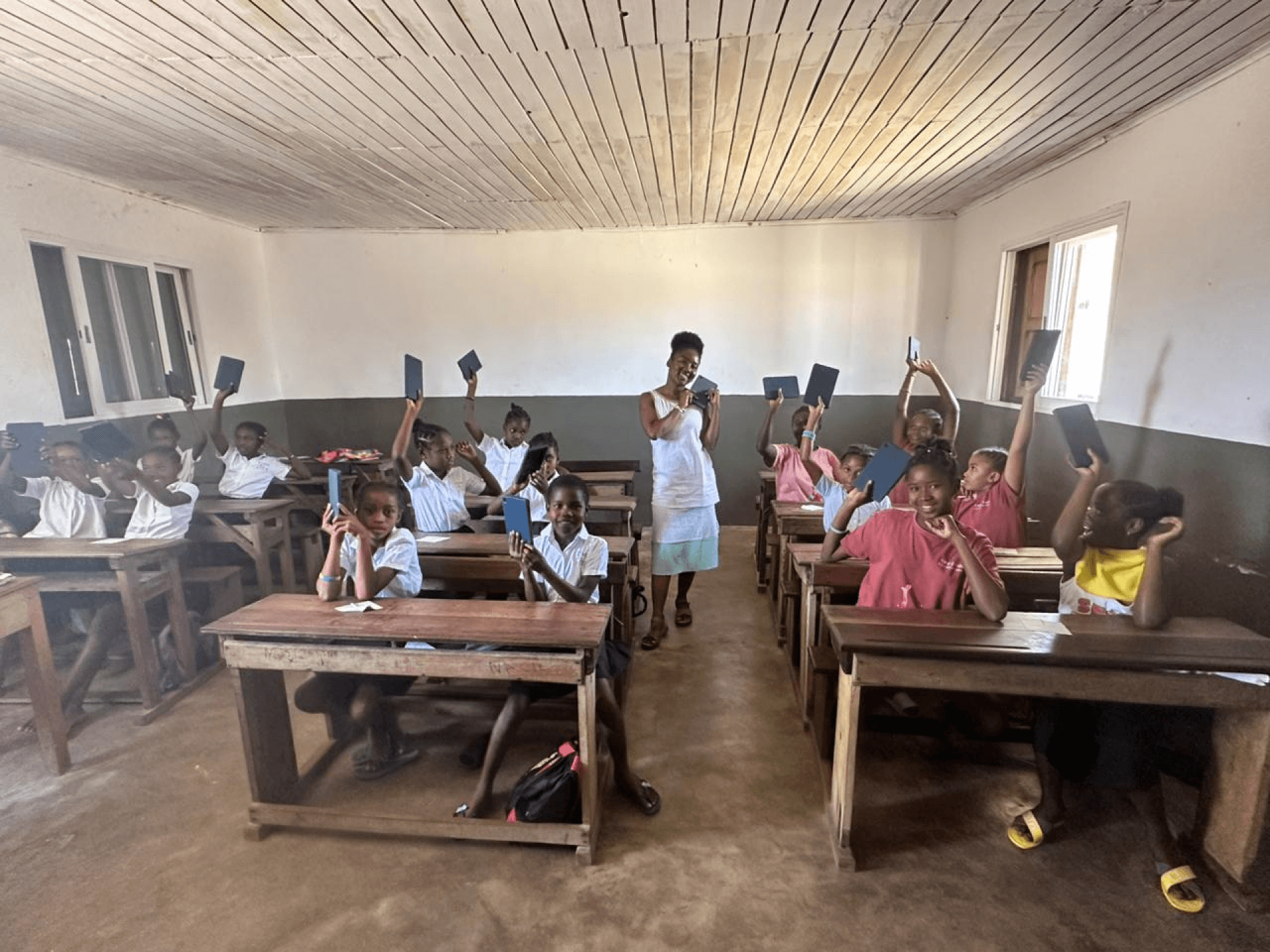
The new devices and free access to the language-learning app help teachers make a greater impact. With FunEasyLearn, educators can ensure that each child receives a learning experience tailored to their needs. Students can practice independently, in small groups, or with the entire class.
The girls receive immediate feedback on their answers, improving their accuracy. Game elements, such as earning flowers, bees, and achievements, motivate students to learn, memorize, and recall new vocabulary effortlessly.
Another key feature for teachers is advanced statistics, which allow them to track students' progress and identify areas for improvement.
Committed to Make Language Learning Accessible
FunEasyLearn strives to make language education accessible to anyone. For that reason, we have a FREE subscription that allows anybody to learn a language free of charge. Thousands of language learners benefit from free access to our app. Many of them need language skills to access higher education and employment opportunities. We are happy that FunEasyLearn helps train learners of all ages for a better future.
What do you get with a FREE subscription?
The free subscription with FunEasyLearn is ideal for new users who want to try out the app before committing to a plan. Another user group is language learners who can't afford a paid subscription. You only need to create an account to save your progress and access the following features:
- 34 language courses from 62 native languages
- Access to the first vocabulary levels
- Basic modes, including the Child Mode
- Learning goals and statistics
- Offline access
- No ads
In addition to the free trial, diligent learners can exchange the flowers (the in-app currency) they earn by playing for a premium plan with advanced features. Practicing for 20 minutes daily is enough to earn 20,000 flowers, which can buy a one-month subscription with select premium features. Learners can thus unlock vocabulary for all levels and benefit from more premium modes.
The subscription will be renewed the following month with the same number of flowers or discontinued if insufficient.
Summing Up
Young girls in remote areas in Madagascar have restricted access to education. Multiple international organizations have launched initiatives to support girls' education. FunEasyLearn joined forces with the Time + Tide Foundation to supply a group of young Malagasy girls with tablets and free access to the FunEasyLearn app. The initiative encourages learners to improve their language fluency and digital literacy. The ultimate goal is for young girls to stay in school, achieve academic success, and access better employment opportunities.
Language learners who cannot afford a paid plan can use the FunEasyLearn app for free. Another option is to practice regularly for 20 minutes a day and exchange the in-app currency for a monthly subscription with select premium features.
How would you like to learn a new language?

